Golf Course Retirements Landing in the Rough
Category: Active adult communities
December 3, 2019 — For baby boomers who love to play golf, living on a golf course seems like a dream. Drive over in your golf cart and play any time you want, no waiting. Later on in the afternoons, sit back and enjoy the beauty of a golf hole in the setting sun from your lanai. Unfortunately, golf is not as popular as it once was. That decline is interrupting the dream of golf course living.
Our friends over at www.retirehoppy.com just wrote about unpleasant experiences at their community, Trilogy at Vistancia in Peoria, Arizona. Seems like the developer has changed its mind, and now would like to sell the golf course to the Home Owners Association. Nobody there knows what is the best decision. Buy it (HOA has first right of refusal), or let the developer try to sell or develop it? Either way is fraught with problems.
According to the National Golf Foundation about 200 golf courses closed in 2017, more than ten times the number of ones that opened. Many of the approximate 1200 U.S. communities that have golf courses within them were built from 1970 to 2010. Some of those are having problems. Communities find golf courses are expensive to maintain. Not all homeowners want to play golf, or pay for their upkeep. As a result, declining revenues make some courses unviable.
Various solutions have been tried to fix the problem, depending on who owns the course – developer or HOA:
- Offer the golf course to the HOA or an outside entity
- Close it down or drastically reduce its budget
- Reduce the number of holes or courses
- Dramatically increase dues and assessments
- Make members of the association pay for golf or social memberships, even if they don’t play
- Turn the space into something else – a farm, park… or additional houses
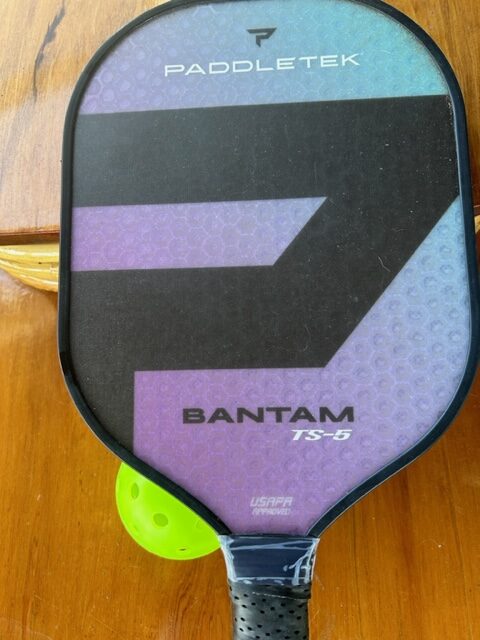
Some communities have been able to recover when their golf course closed. One of those is Sapelo Hammock Golf Club, in Shellman Bluff, Ga. When that course stopped operations the homeowners contributed to a fund and purchased the course. Now they volunteer to help keep it going.
Although it used to be conventional wisdom that living on a golf course increases property values, the opposite is beginning to happen. When the golf course starts to fail there are no good solutions. The HOA will be wracked with problems and difficult issues. Lawsuits start. Some owners stop paying their dues. If the HOA takes over, it could find that maintenance and capital issues wreck the budget. Homeowners who bought with the intention of living on a golf course find their views and access destroyed. If the course closes or its condition continues to deteriorate, values go lower, and existing owners are stuck.
Two golf courses that have closed in recent years are the Coffee Creek Golf Course in Edmond, OK, and StoneRidge Country Club in California. Others are struggling too. The Wall St. Journal reported in a very informative article, “Golf Home Owners Find Themselves in a Hole“, that homes in golf course communities stay on the market about 27% longer and benefit from only a small difference in price than other homes (it used data from Realtor.com).
The vast majority of communities with golf courses are stable and not in any danger. Homeowners who live in them joined for the golf and they want to see that interest protected. But caution is advised, whether you are a prospective buyer or an existing home owner.
Prudence and Caution Always Advised
If you are thinking about living on a golf course it is extremely important that you do your due diligence. Examine all the financial documents you can to see how healthy the community is, especially the golf course operations. Talk with homeowners and try to see how the wind is blowing – do they love the course, play often, and seem protective of it? Or do they not play, complain about the expense or conditions, or otherwise seem negative? Only with that kind of information can you make an informed decision. There are plenty of places where you can live near a golf course, but not on it, without any of that risk!
Who owns the course makes a big difference. Some developers care tremendously about protecting their product (the golf course being part of that). But others might take cut and run if the numbers go south. If the HOA owns the course, you probably have more protection, because the residents can control their own destiny better. But even then, if the community experiences financial problems and/or the course starts losing too much money, unpleasant decisions might have to be made.
Comments? Do you live in a golf course community? Do you love it, or do you wish you had made a different decision. Please share your experiences in the Comments section below!
For further reading:
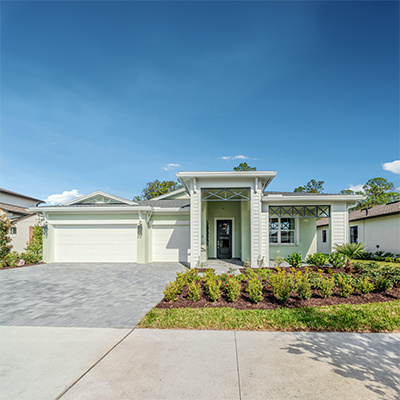
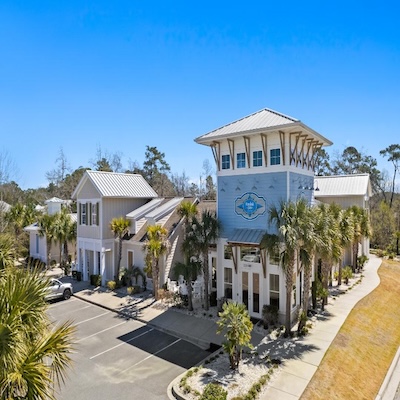


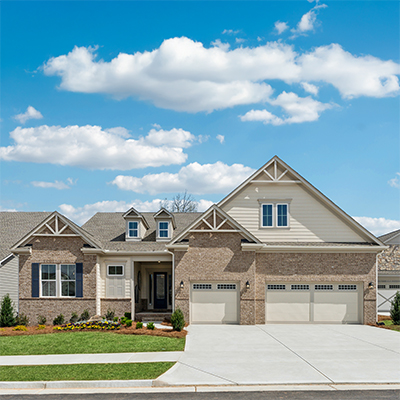
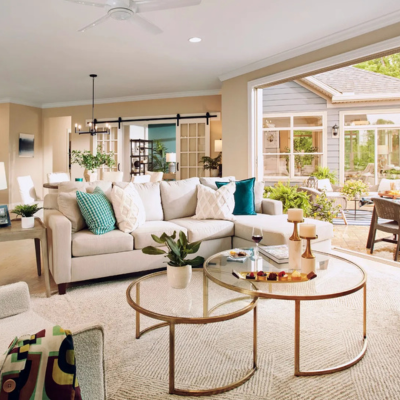
Comments on "Golf Course Retirements Landing in the Rough"
Fionna says:
We used to live on the opposite side of the street facing a golf course. Beware of flying balls and broken windows! A neighbor whose home faced the course finally put up shatterproof windows. Never again, even though hub plays golf.
jean says:
There are lots of community golf-course-gone-wrong stories out there and not just in 55+ communities. Have heard of several acquaintances whose HOAs ended up having to purchase and run the courses and it isn't a good thing. Even if the HOA hires a course management company to run things it is a lot more work for the volunteers on the HOA board and often the course has to be open the public to make it financially stable. I recently read about an even worse situation at a 55+ community in NJ - the community developer sold the course to a housing developer who plans to put in hundreds high density housing units, complete with basement apartments on what was the golf course! Now, the very reason many of the 55+ residents bought in that community do not have the amenity they expected, their home values will be further diminished due to the proximity to the high density development which is being built by a cult-like group and will be filled with its adherents.
When we were looking for a home in a 55+ community we specifically looked for a place with as few "amenities" as possibly, no golf course, no club house, no pool. We golf are area courses and there are some huge fitness clubs nearby for anyone who wants that sort of thing. Why anyone wants to live on a course is beyond me and I much prefer golfing on a natural setting and not on fairways lined with houses.
LS says:
Who owns the course makes all the difference. We have lived on a golf course lot for over 20 years. It is a private club and we are members, for now. I can attest that golf is less attractive to younger folks. All four of my sons took lessons at the club but only one actually took up the sport. The other three went on to other, more active team sports.
Our club is owned by the giant company Club Corp which owns hundreds of clubs and is constantly buying more. They have the resources and expertise to properly run a club. They allow members from other Club Corp clubs to play Club Corp clubs around the world, for a fee or for free depending on their level of membership. This brings in outside revenue as well as the private tournaments and other events that rent the halls.
Even so, dues to a private club are expensive. Ours are over $750 a month. You have to play a lot of golf to justify that and we just don't play much any more. I am looking to move to a nearby active adult community that has a course which is not owned by the HOA. Paying a $40 or $50 green fee when we choose to play would be a far better option for us than monthly club dues. If we do move there, we would not be paying for a golf course lot again in case the course owner decides to sell or goes bankrupt. We would be looking for a lot that adjoins some greenbelt or water feature instead.
William Mittermann says:
Just a correction to this article. Trilogy @ Vistancia is in Peoria AZ., not California
Editor's note: Thanks for the correction of our error. We have now corrected it - always great to see our readers keeping us on our toes. Thank you.
Welsh Marjie says:
We lived on the executive course at Sun City Hilton Head. It was poorly landscaped for the 5 years we lived there. We were hit by errant golf balls multiple times. Thankfully no broken windows but the on the side of the house was deeply dented. Our new community decided to close the golf course as our construction began. We were not on the golf course so we were only affected by the loss of an inexpensive, convenient course. I wish we had been told the closure was being considered before we bought the property. We love our view but might have continued searching if we had known. The HOA worked out a deal with the local country club but it is further away.
Tom Cahill says:
We live in a retirement community in south central PA, which has two championship golf courses. What the articles stated is true about less young adults entering the sport. I have played for over 50 years, but my two adult children do not. We love it here. It has a modest clubhouse with a grill which is open from Mid March through Thanksgiving due to the lack of golfers during the Winter season. We also have no HOA with their monthly fees, which make this place different from most I have visited, or looked into. From what I have learned from people who have lived here much longer than I have, 7 years, is that the number of annual memberships have dropped dramatically over the past few decades, but we have a strong number of groups from all over the east coast that visit annually that supports it. As for the real estate portion, the value of the houses seem to be somewhat stagnant since we moved in, but recently they are building new houses all around the community, so I guess things can't be too bad for the developer and their plans.
sandyz says:
We have lived in a gated community in SC for three years and are extremely happy with our decision. Two main reasons: First, Our community owns, maintains, and operates all of our amenities, including two highly rated golf courses. The developer has been gone now for 10+ years. Second, our amenities are billed as a "pay to play" menu. You may select on an annual basis, which major amenities you choose to participate in, and at what level, for instance a 10-40 rounds per year golf package, or on the other end, an unlimited golf package. This works perfectly as folks age and play less. Tennis, croquet, pickle ball, and bocce are all similar, so if you don't use that amenity, you just don't sign up for that and you don't pay for it! Other amenities, such as the community pools, health and fitness center, restaurants, etc. are open to all members of the community and are maintained through our club membership dues. We love living on the golf course, and both my husband and I can be described as active retirees and each of us play 3+times per week! We love the beautiful green view across the ponds and fairways, especially since my husband doesn't have to mow it!
Jeff says:
We are 26 year owners of a home in a 27 hole golf course in South Alabama. Our golf course operator has no financial tie to our POA and by our bylaws the POA cannot be involved with any money making business as it is a nonprofit organization. Unfortunatly our Golf Course operator (and owner) is in bankruptcy court and has pushed the POA to pay them what amounts to $400,000/year to "help out". This has been dropped from consideration since a recent survey showed about 75% of the owners do not want to support any operator financially as it appears it will be a bottomless hole.
All 27 holes will either have to continue to be a golf course, park area, or will slide into Nature Conservancy possession and until the bankruptcy case finishes the outcome is unknown.
A nearby 18 hole golf course operator and owner has put his residential course up for sale for $1,900,000 which seems like a pretty cheap price if one is to believe the prices heard for green construction. Our course according to local media is about $1,500.000 upside down.
The article was good but I feel there are many, many more US courses that will go under as much due to sociological issues (younger golfers are getting rarer)as anything.
Admin says:
As the Hertz ad used to say….’Exactly’…. You nailed it. Unless more of the younger crowd gets into Golf, I believe this will get worse as the Boomers’ health starts to go South. We went through the same thing here at our community – but so far the outcome has been positive – we ‘bought the farm’ and have been making it work. That said, since I’m not a Golfer, this is the case I’ve been making to find a nice community without Golf – wherever we land, hopefully next to a nice little airport
James Haas says:
We have lived in Pecan Plantation which is a gated community southwest of Fort Worth in Granbury, Texas for 10 years. It is a great community with an abundance of amenities including a challenging 18 hole private golf course. Another golf course is also located in the community which is operated separately with additional dues for those who want more of a small private country club feel. This course is owned and maintained by the members of the club rather than the association. The monthly association dues, including golf on the main course, are $151 a month currently. The number of annual rounds played on this course rank in the top 5 of country clubs. Despite the number of rounds played, the course is kept in beautiful condition. So, it is still very possible to live and play golf on a great course for a very reasonable amount. There are currently 3500+ residents and the community is steadily growing which may necessitate adding another golf course in the future.
Barbara says:
I have several nieces and nephews in their 30s and up who say the reason they don’t play is that the weekends are family time. It is no longer acceptable to them that one of them disappear for several hours of recreation. They may take it up later.
We live in Saddlebrooke in Tucson. There are two Hoas. One HOA is private and has 3 9 hole courses. The other is open to the public. The private club is not having issues. When it bought the course years back, it was a bit of a struggle, but they are healthy now. The other HOA just bought it’s two 18, and they are struggling for now. I don’t play, but I love the views. My husband is an avid golfer. We wouldn’t have bought here two plus years ago if the golf wasn’t available and there weren’t lots of amenities. I guess it’s a very individual choice. Depending on the socioeconomic mix of the residents, different communities will view this different ways. The goal when buying should be to make sure the community is the right fit.
ljtucson says:
I live in a 50+ community of 1300 homes around an 18 hole golf course. We market to retiring golfers to attract a decent percentage of new homeowners who golf. This is critical to replace those who age out of the game. We also have lots of clinics and "Get Ready Golf" to get new retirees interested in golf. We have perhaps the most successful golf course in the Tucson area. Owned by the HOA and membership stronger than ever. Financially strong and in fabulous condition - at 22 years old we just spent 1+ million to redo all greens and bunkers, a few years back over a million for new sprinkler system...we are on reclaimed water and always adjusting over seed acreage to minimize water usage. Everyone is conditioned to playing a 4 hour round here which makes a huge difference. Our men's, women's and couples 18 hole groups are still growing, we have a large 9-hole ladies group and added 9-hole men's group for those who can no longer play 18. We have super fun large putting leagues too. Other courses in the Tucson area are struggling. I started golfing when we moved here - love it! https://tucson.com/sports/greghansen/greg-hansen-everybody-s-having-fun-at-dove-mountain-s/article_9a4b353f-eb33-597d-b3f9-2a235fcc7395.html
Dave C says:
Another thing I notice about homes taking longer to sell if they are situated on a golf course: HOA’s often don’t allow fences on golf course lots. Many retirees are pet owners and as we age, walking a dog isn’t always an option. Sending ones pet out into a fenced yard is the answer. This was a prime reason that we didn’t buy at Colonial Heritage in Williamsburg. Many beautiful homes on the course were available but as they couldn’t have even a small fenced area they were “no-gos”!
These HOA’s must take another look at this policy as it will hurt the community in the long run. I also am not a golfer nor are many of my friends due to aging wrists etc.
VTRetiree says:
Before you rule out a home located on/within a golf course because fences aren't allowed & you have a pet you want to let out keep in mind that you can buy a PetSafe invisible fence for your pet. They do come with the flags but you do not need to use the flags, just a matter of training your dog. We have the PetSafe unit with the collar & loved it as much as our dog. Once our dog was trained he actually knew where his boundaries were & could go out without the collar if we didn't put it on, & to be honest most of the time he didn't have it on.
Dave C says:
VTRetiree. I’m well aware of invisible fencing and would NEVER use it. My pet will not be put through the training for one, and 2, other dogs or critters can enter at will as they don’t have the collar putting the pet again in jeopardy.
VTRetiree says:
Dave C, I fully understand not wanting to do the training because it involves the pet getting a shock. But in all honesty my cocker only got shocked twice & he knew, & ours wasn't turned up high I tested it on my hand first. I would never do anything to hurt my pet, he is family. I've seen the work of the collars used for barking (a natural instinct) & would never use one for that. I hadn't thought of other dogs coming into the area thinking they wouldn't be running free. I live country & wanted my dog to be able to go out without leash & run about. It worked great for us though because of deer, skunks etc. he never went out alone after dark & most of the time he was never outside without one of us being there. I agree with wanting to put up a fence if I lived in a community if nothing else but for privacy, & would never live where I had that restriction.
Jeffrey says:
It is not just golfing that is affected by a lack of involvement from the younger generation. Hunting, fishing, etc. are all seeing a drop in interest by the younger generation. Family time and other activities are more important for young couples with children, the same time crunch we all faced when we were in our 30's and 40's. Also, almost all activities for children now are "organized" and young couples just don't have the time or disposable income to spend on sports not directly related to their young families. Who has time to golf all day when you have dance and swim competitions plus soccer and baseball games to attend all weekend.
Dave C says:
VTRetiree it appears by your latest post that you and I actually are closer to being on the same page! Enjoy your retirement. Thank God for our pets being “family”!